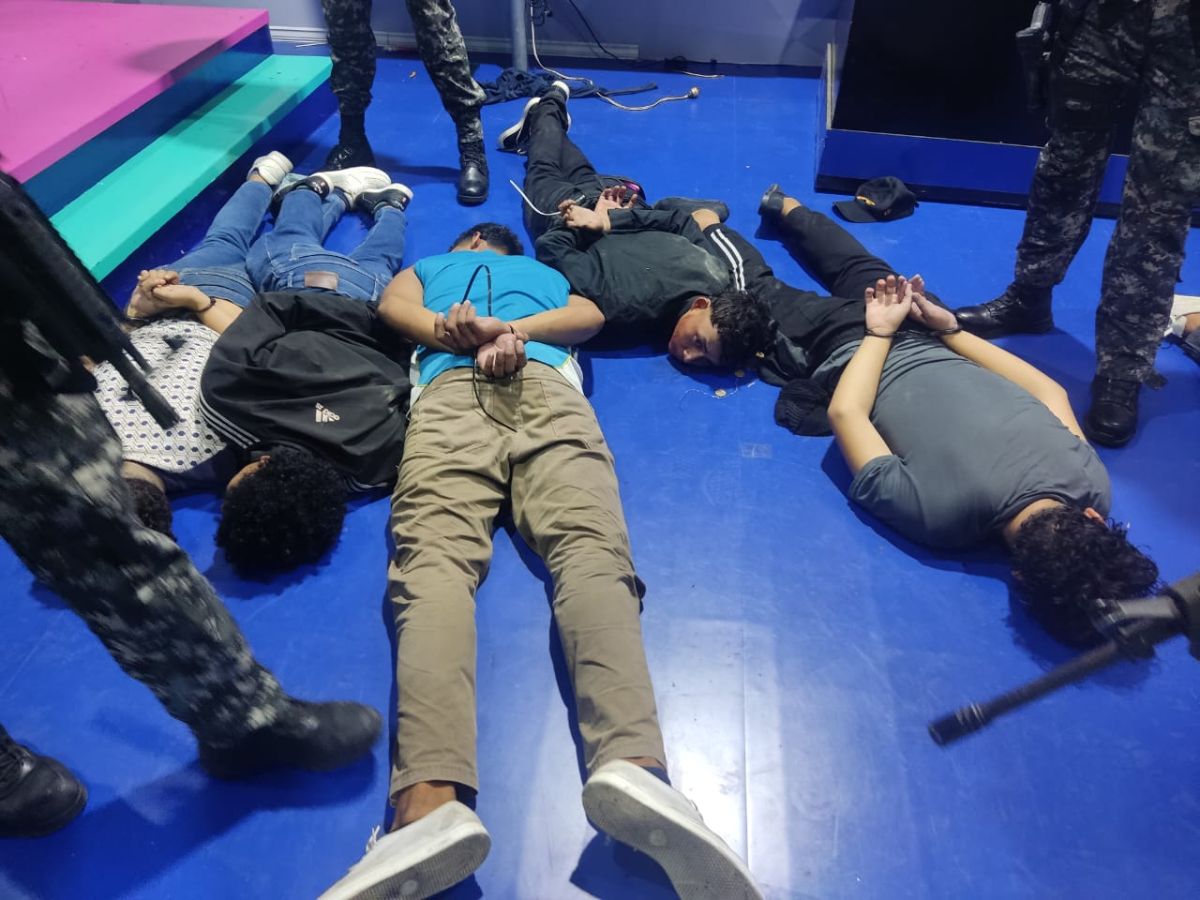Welcome to Factal Forecast, a look at the week’s biggest stories from the editors at Factal.
We publish our forward-looking note each Thursday to help you get a jump-start on the week ahead.
Passengers and crew on an Alaska Airlines flight experienced a rare and horrifying event last week when a panel flew off their plane at 16,000 feet, resulting in a rapid decompression and an emergency landing. In this week’s Factal Forecast podcast, Senior Editor Jimmy Lovaas and Editor Joe Veyera discuss the subsequent grounding of more than 170 Boeing 737 MAX 9 planes as well as the ongoing safety concerns and travel implications.
Listen now or download on your favorite platform.
Week of Jan. 12-19
A Look Ahead
Jan. 11 – ICJ genocide hearing against Israel
The International Court of Justice (ICJ) will hold two days of hearings starting Thursday on a case brought by South Africa accusing Israel of partaking in genocide in the war on Gaza.
What’s happened so far
The ICJ is the United Nation’s highest legal body, established to deal with disputes between states. In late December, South Africa filed a genocide case against Israel, alleging it was violating its obligations under the 1948 Genocide Convention during the ongoing war in Gaza. Israel called these proceedings “outrageous,” insisting its operation in Gaza “operates in accordance with international law.” The Palestinian health ministry in Gaza has reported the death toll at more than 23,000 people, approximately two-thirds of which are women and children.
The impact
The 15-judge panel will be joined by an additional judge appointed by each country, with Israel appointing former Supreme Court chief Aharon Barak. Although the case for genocide revolves around the occupied Palestinian territories, they will have no formal role in the proceedings as they are not a UN member state. Most of these hearings take years to complete, but South Africa is hoping the ICJ grants “emergency measures,” including a ceasefore in Gaza. Although the court’s decision is binding, the countries involved are responsible for enforcement.
Jan. 13 – Taiwan presidential election
Voters in Taiwan will go to the polls Saturday to vote for the country’s legislature and next president in an election that global observers say is “pivotal” for U.S.-China relations.
What’s happened so far
Incumbent President Tsai Ing-wen cannot run in this election due to term limits, throwing open the field. Vice President Lai Ching-te is running under the ruling Democratic Progressive Party banner, hoping to secure another presidential term for the party. Incumbent New Taipei Mayor Hou Yu-ih is running as the candidate for the opposition Kuomintang (KMT) party. A third candidate, Ko Wen-je, is running for the Taiwan People’s Party. Polling shows Lai as the favorite to win.
The impact
China, which claims the island nation as part of its territory, has loomed over the election campaign, with the next president responsible for managing the already strained relationship. The vote comes amid heightened Chinese military activity and concerns it may attempt to take the island by force. A recent satellite flyby triggered a rare national alert that in English reported a missile flyover, for which the defense ministry has since apologized.
Explore 15 trends challenging risk intelligence including: generative AI, media manipulation, AI detection, geopolitics, elections, brand reputation, labor action, social media, supply chains, cybersecurity and more
Jan. 14 – Guatemala presidential transition
Longshot anti-corruption candidate Bernardo Arévalo will be sworn in as the president of Guatemala on Sunday despite actions taken by the establishment that have been described as a “coup” attempt.
What’s happened so far
Arévalo, the son of a former president who went into exile, convincingly won the runoff election this past summer before quickly faced obstacles from those in power. His political party was suspended and efforts were made to lift his immunity from prosecution. That led to widespread protests throughout the country calling for Attorney General María Consuelo Porras’ resignation. She will likely continue in that position seeing as the president does not have the power to unseat her.
The impact
Assuming he is sworn in with no issues, the roadblocks facing Arévalo will not disappear simply because he’s president. There are strong forces in government that oppose him and his political viewpoint. Congress has already limited his ability to spend resources on education and health care. Sunday will likely be the start of a tough road to enact real change in the country where corruption is deeply rooted.
Jan. 15 – North Korea parliamentary budget session
North Korea will hold a key legislative session on Monday to discuss its state budget for 2024, amid increased military activity and strained relations on the Korean peninsula.
What’s happened so far
Tension continued to build between North and South Korea last year, with the former launching five intercontinental ballistic missiles in 2023, the highest number the country has ever launched in a single year. A recent exchange of artillery fire near the de facto maritime boundary between the two Koreas prompted evacuations on South Korean border islands and threatened a 2018 military agreement between the two Koreas intended to ease relations by banning live-fire exercises and other hostile acts.
The impact
North Korea has explicitly signaled even more military activity in 2024, vowing to launch three more spy satellites and produce more nuclear materials. Monday’s legislative session will be another window into North Korea’s intentions in the new year.
Jan. 15 – Iowa caucuses
U.S. Republican Party presidential candidates will face their first litmus test of the 2024 election cycle Monday as voters in Iowa become the first in the nation to select who they want to be the face of the GOP.
What’s happened so far
Former President Donald Trump is going into the event as the presumed Republican front-runner, consistently polling as the favorite candidate of around 50 percent of GOP voters in the state and leaving all other candidates — including Nikki Haley, Vivek Ramaswamy and Ron DeSantis — to battle for the remainder. The race is complicated by a polar vortex on caucus day, with temperatures dipping below zero in some precincts, which might dissuade would-be voters from attending the in-person events.
The impact
Because of Trump’s strong lead in the polls, anything less than a landslide victory validating those numbers would be considered a disappointment for his camp, which has stated a goal of attaining a 13-percent margin of victory, the largest in state caucus history. But a possible disappointing result would by no means be a killing blow for the Trump campaign, as the caucuses have a poor track record of actually predicting the presidential candidate come November.
Jan. 15 – World Economic Forum begins in Davos
Elites from around the world will descend on Davos, Switzerland, on Monday for the annual World Economic Forum meeting.
What’s happened so far
The Davos summit has become a vaunted gathering of the globe’s political, economic and corporate elite, as well as influencers from relevant spaces. Topics of discussion this year will include the usual themes of emerging technologies and climate change, as well as 2024-specific discourse surrounding the spate of globally-impactful elections set to take place this year.
The impact
Davos has served as a lightning rod of criticism over the years with grievances surrounding the event’s exclusive and elite nature that prioritizes convoluted corporate rhetoric over tangible action. The Swiss government will deploy up to 5,000 soldiers to the mountain resort in order to bolster security as protests at the event are a regular occurrence.
Jan. 18 – Deadline to form government in Northern Ireland
Political parties in Northern Ireland have until next Thursday to form a new government nearly two years after the first minister resigned.
What’s happened so far
In February 2022, First Minister Paul Givan, member of the Democratic Unionist Party (DUP), announced his resignation and consequent collapse of the power-sharing government following a controversial post-Brexit trade deal put in place by Westminster. Since then, there have been several delays in reaching a deal, with the DUP refusing to take part in an executive with the Sinn Fein party, which became the largest party in Northern Ireland for the first time last year.
The impact
If no government is formed by Thursday, the nation’s secretary has a legal duty to call an early devolved assembly election to take place within 12 weeks. Meanwhile, parties have been preparing for an expected election in the United Kingdom at some point this year. British Prime Minister Rishi Sunak suggested the election is likely to take place in the second half of the year. Last month, Westminster made a new offer of £3.3 billion ($4.2 billion) to Northern Ireland’s budget in a bid to help restore power-sharing in the nation.
What Else Matters

Boeing 737 MAX 9 grounding
More than 170 Boeing 737 MAX 9 planes were grounded by U.S. regulators after a panel blew off an Alaska Airlines flight shortly after takeoff from Oregon’s Portland International Airport on Friday night, forcing pilots to make an emergency landing. Several passengers suffered minor injuries, but authorities say the incident could have been far worse, with the seats adjacent to the blowout unoccupied, and all passengers seated with the flight not yet at cruising altitude. During ensuing inspections, both Alaska and United Airlines reported the discovery of loose hardware, prompting further questions about both production and maintenance of the aircraft.
Watch for: Turkish Airlines, Aeromexico, Panamanian carrier Copa Airlines and Indonesia’s Lion Air have all also grounded the 737 MAX 9 planes in their fleet, and it’s unknown when the Federal Aviation Administration will clear a return to service in the United States, with the agency saying Tuesday “the safety of the flying public, not speed, will determine the timeline.” Meanwhile, the affected airlines have been forced to cancel or delay hundreds of flights each day, leaving thousands of travelers in the lurch.
Cold snap across northern Europe
Record-breaking cold temperatures in northern Europe spread southwards into the continent this week, forcing the Netherlands to restart gas production at the shuttered Groningen gas field to ensure availability of energy supplies. Two people were killed in an avalanche in Finnish Lapland, while neighboring Swedish Lapland recorded a temperature of minus 46 degrees Fahrenheit, the lowest January temperature in the country in 25 years. More than 1,000 vehicles were trapped by heavy snowfall on the E22 road in southern Sweden last week, and the Bothnian Bay between Sweden and Finland experienced the earliest winter freeze since at least 2011, according to meteorological researchers.
Watch for: Low temperatures are set to endure in much of northern and western Europe through the end of the week, with U.K. health officials issuing a cold weather warning through Friday and Finnish meteorologists forecasting a new snowstorm with temperatures falling to minus 22 degrees Fahrenheit. Sudden decreases in temperature could also create dangerous travel conditions in parts of northern France and Germany where standing water from heavy flooding could freeze over. While the continent’s energy systems are able to withstand this cold weather due to higher gas storage levels, such resilience could be tested by long-lasting low temperatures, a typical outcome of the El Niño phenomenon.
Gang uprising in Ecuador
A police operation at a Guayaquil-area prison on Sunday found that the leader of Ecuador’s major Los Choneros gang, Jose “Fito” Adolfo Macias Villamar, had seemingly escaped. The news sparked a wave of prison riots in facilities across the country. Ecuador’s homicide rate has spiked over the last two years to become the worst in Latin America, an issue that newly inaugurated tough-on-crime President Daniel Noboa ran on. Since Sunday, violence has spilled over from prisons into the cities with reports of police kidnappings, bombings and threatening gang communiqués posted. On Tuesday, a group of Los Tiguerones gang members took the television crew of TC Mi Canal hostage at a studio in Guayaquil before Ecuadorian security forces secured the building several hours later. In response to the unprecedented challenge, Noboa has imposed a number of exceptional security measures, including a curfew and limits on flights.
Watch for: Gang violence prior to and during the current uprising has traditionally been the worst in the coastal port cities of Guayaquil, Manta and Machala. Ecuador’s gangs have also targeted high profile politicians, such as this summer’s assassinations of presidential candidate Fernando Villavicencio and the mayor of Manta. The conservative Noboa administration has pursued closer economic and security ties to the United States, which will likely change travel advisories for Ecuador in the coming days. Meanwhile, Security forces will continue the search for Fito and leaders from rival gangs such as Los Lobos and Los Tiguerones. The chaos has also given way to misinformation on social media, such as erroneous reports of gunfire at a Guayaquil university. Significant disruptions to schools, transportation and commerce are expected as more violence is reported, in addition to major death tolls from fighting in the prison system.
Extended Outlook
What’s on our radar in the coming weeks…
Jan. 11-19
Jan. 11
- Hunter Biden to make his initial court appearance on tax charges
- Turkey, Romania, Bulgaria to ink deal on floating Black Sea mines
- IMF to meet on Pakistan loan program
- ICJ hearing on Israel
Jan. 13
- Taiwan election
- Africa Cup of Nations begins
Jan. 14
- Comoros presidential elections
- Guatemalan presidential transition
Jan. 15
- Iowa caucuses
- North Korea budget meeting
- World Economic Forum begins in Davos
Jan. 18
- Deadline to form government in Northern Ireland
Jan. 19
- Winter Youth Olympics begin in Gangwon, South Korea
Jan. 20-26
Jan. 23
- New Hampshire primary
Jan. 25
- Nepal national assembly elections
- Amazon staff at new UK warehouse to strike
Jan. 26
- French president visits New Delhi, India
- Tuvalu elections
Jan. 27-Feb. 2
Jan. 28
- Finnish presidential election
Feb. 1
- EU budget summit
Feb. 3-9
Feb. 4
- El Salvador election
Feb. 7
- Azerbaijan election
Top photo: Iowa, which held a straw poll in Ames in 2011, is holding its first-in-the-nation Republican caucus on Monday, as the state is seen as a litmus for how the presidential election will go. (Photo: Phil Roeder / Flickr)
Thanks for reading! If you want the Factal Forecast in your email inbox, you can sign up for free.
Factal gives companies the facts they need in real time to protect people, avoid disruptions and drive automation when the unexpected happens.
Try Factal for free or talk with our sales team (sales@factal.com) for a demo.


